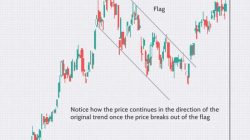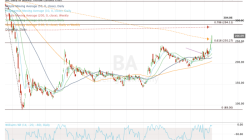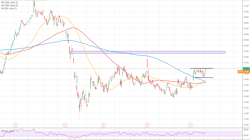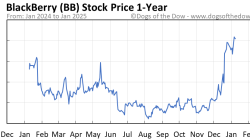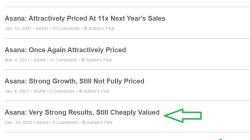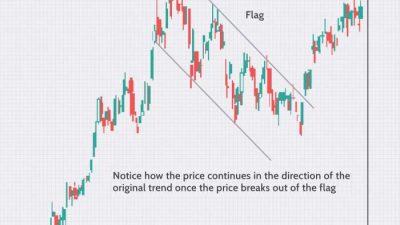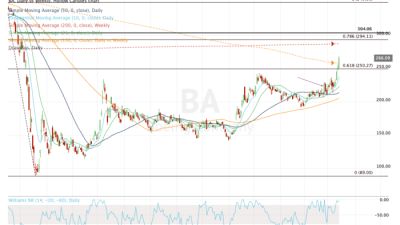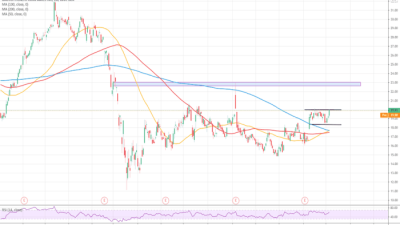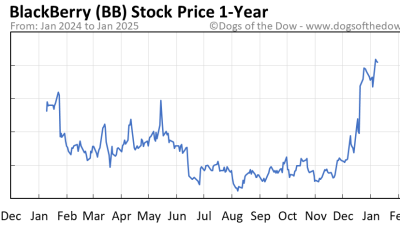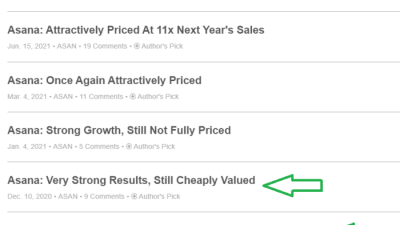BMW Stock Price: A Comprehensive Analysis
This analysis delves into the current stock price of BMW, examining data acquisition methods, influencing factors, financial performance correlations, competitor comparisons, and historical price trends. Understanding these aspects provides a comprehensive view of BMW’s market position and future potential.
BMW Stock Price Data Acquisition

Source: cdn-ds.com
Reliable sources for real-time and historical BMW stock price data are crucial for accurate analysis. These sources offer varying data formats and update frequencies, catering to diverse analytical needs.
- Financial News Websites: Sites like Yahoo Finance, Google Finance, and Bloomberg provide real-time and historical stock data, often in CSV or JSON formats, with updates ranging from real-time to daily.
- Brokerage Platforms: Most online brokerage platforms (e.g., Interactive Brokers, TD Ameritrade) offer detailed stock data, including real-time quotes and historical charts, typically updated frequently throughout the trading day.
- Financial APIs: APIs such as Alpha Vantage, IEX Cloud, and Tiingo provide programmatic access to extensive financial data, including BMW’s stock price, often in JSON format with high-frequency updates (e.g., minute-by-minute).
- Direct from the Frankfurt Stock Exchange (Xetra): The official exchange data may offer the most accurate, albeit sometimes requiring a subscription or fee.
Accessing this data involves different methods. APIs allow automated data retrieval, while web scraping extracts data directly from websites (though this requires careful consideration of the website’s terms of service). Both offer advantages depending on the user’s technical skills and data requirements.
| Time Retrieved | Current Price | Day’s High | Day’s Low | Previous Day Close |
|---|---|---|---|---|
| [Insert Time] | [Insert Current Price] | [Insert Day’s High] | [Insert Day’s Low] | [Insert Previous Day Close] |
Factors Influencing BMW’s Stock Price
Several macroeconomic and industry-specific factors significantly impact BMW’s stock price. Understanding these interdependencies is key to predicting future price movements.
- Global Economic Growth/Recession: Strong global economic growth usually boosts luxury car sales, positively impacting BMW’s stock price. Conversely, recessions lead to decreased consumer spending, negatively affecting the stock.
- Interest Rates: Higher interest rates increase borrowing costs for consumers and BMW itself, potentially slowing sales and impacting profitability.
- Currency Exchange Rates: Fluctuations in the Euro (BMW’s reporting currency) against other major currencies affect the company’s international profitability and investor perception.
- Competition: Intense competition from other luxury automakers (Mercedes-Benz, Audi, Tesla) impacts BMW’s market share and profitability.
- Technological Advancements: The rapid pace of technological change in the automotive industry (e.g., electric vehicles, autonomous driving) presents both opportunities and challenges for BMW, influencing investor sentiment.
Global economic conditions create broad market trends, while industry-specific factors directly affect BMW’s competitive landscape and operational efficiency. A strong global economy benefits BMW, but intense competition or technological disruptions can offset these positive effects.
Consumer confidence and purchasing power directly influence BMW’s sales volume. High consumer confidence and strong purchasing power drive demand for luxury goods, including BMW vehicles, leading to increased revenue and a positive impact on the stock price. Conversely, decreased consumer confidence and reduced purchasing power dampen sales, negatively affecting the stock price.
BMW’s Financial Performance and Stock Price Correlation

Source: picdn.net
Certain key financial metrics strongly correlate with BMW’s stock price fluctuations. Analyzing these metrics provides insights into the company’s financial health and its impact on investor confidence.
- Revenue Growth: Consistent revenue growth demonstrates strong market demand and operational efficiency.
- Earnings Per Share (EPS): Higher EPS indicates increased profitability and shareholder value.
- Profit Margins: Strong profit margins reflect efficient cost management and pricing strategies.
- Cash Flow: Healthy cash flow demonstrates the company’s ability to invest in future growth and return value to shareholders.
BMW’s quarterly earnings reports significantly influence its stock price. Positive surprises (exceeding analyst expectations) generally lead to an increase in the stock price, while negative surprises (falling short of expectations) typically result in a decrease. The market reacts to the reported financial performance, adjusting the stock price to reflect the perceived value of the company.
BMW’s investment strategies and capital expenditures influence investor sentiment. Investments in research and development (R&D), particularly in electric vehicles and autonomous driving technologies, signal a commitment to future growth and innovation, potentially boosting investor confidence and the stock price. However, significant capital expenditures without corresponding revenue growth can raise concerns about profitability, leading to a negative impact on the stock price.
Competitor Analysis and Stock Price Comparison
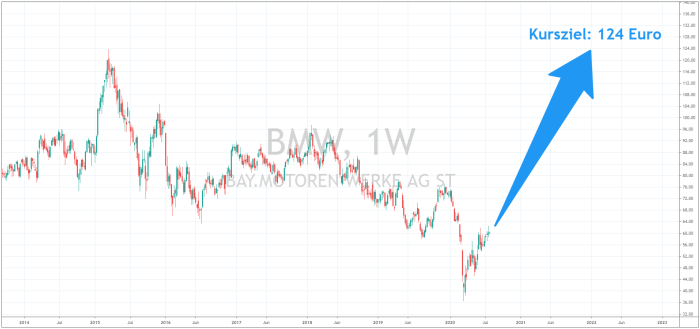
Source: asktraders.com
Comparing BMW’s stock performance with its main competitors provides context for its market position and relative strength.
Monitoring the current stock price of BMW requires a keen eye on market fluctuations. Understanding these shifts can be aided by analyzing broader market trends, such as those affecting the cfa trade price stock , which can offer insights into potential investor sentiment. Ultimately, though, a thorough understanding of BMW’s specific financial performance remains crucial for accurate price predictions.
| Company | Year-to-Date Return (%) | One-Year Return (%) | Market Capitalization (Billions) |
|---|---|---|---|
| BMW | [Insert Data] | [Insert Data] | [Insert Data] |
| Mercedes-Benz | [Insert Data] | [Insert Data] | [Insert Data] |
| Audi | [Insert Data] | [Insert Data] | [Insert Data] |
| Tesla | [Insert Data] | [Insert Data] | [Insert Data] |
Relative performance is influenced by various factors, including product innovation, market share, brand perception, and financial health. Changes in market share within the luxury automotive sector significantly influence investor perception. Gaining market share generally leads to increased investor confidence and a higher stock price, while losing market share can have the opposite effect.
Illustrative Representation of Stock Price Trends, Current stock price of bmw
Over the past five years, BMW’s stock price has exhibited a generally [Insert Overall Trend: e.g., upward, downward, volatile] trend. Significant peaks and troughs can be attributed to various factors, such as global economic conditions, technological advancements, and company-specific events (e.g., product launches, recalls, changes in management).
A visual representation of the stock price trend over this period would show [Describe the Shape: e.g., a gradual upward slope with some periods of consolidation, a sharp decline followed by a recovery]. Significant turning points would be evident, marking periods of major market shifts or company-specific events. The slope of the trend line indicates the overall direction of the price movement, while the presence of peaks and troughs highlights periods of significant volatility.
Interpreting the visual representation helps anticipate future price movements by identifying potential support and resistance levels, identifying patterns (e.g., trends, consolidations), and considering the impact of external factors. However, it’s crucial to remember that stock price prediction is inherently uncertain.
Essential Questionnaire: Current Stock Price Of Bmw
What are the typical trading hours for BMW stock?
BMW stock trades on the Frankfurt Stock Exchange (FWB), so trading hours generally align with European market hours.
Where can I find detailed historical data on BMW’s stock price?
Reliable sources for historical data include financial data providers like Yahoo Finance, Google Finance, and Bloomberg.
How often is BMW’s stock price updated?
The stock price is updated in real-time throughout trading hours, reflecting the latest buy and sell transactions.
What are the risks associated with investing in BMW stock?
Risks include general market volatility, fluctuations in the automotive industry, competition from other luxury car manufacturers, and global economic uncertainty.

